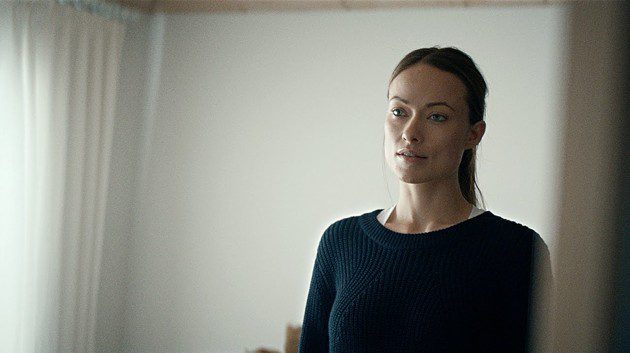Olivia Wilde has found herself to be a subject of ridicule on World Down Syndrome Day.
In support for the day of awareness, Wilde starred in a new advertisement called "How Do You See me?," which encourages viewers to see people who have Down syndrome as regular people who aren't any different than the rest of the world.
The video specifically shows Wilde go through a range of emotions, while a separate voice of someone who has Down syndrome describes the negative experiences she'll go through because of the condition, serving as Wilde's inner dialogue.
The video, according to the narrator and Wilde herself, is meant to raise awareness about Down syndrome.
But the ad, made in part by CoorDown, an Italian association for people who have the syndrome, may accomplish the opposite, according to The Daily Beast's Emily Ladau, who said she's also disabled and sometimes feels society doesn't help her succeed because of her disability. She said the advertisement fails one of the biggest issues facing those with Down syndrome.
"Perhaps one of the biggest barriers to full inclusion for people with any type of disability is, quite simply, the fact that most people consider 'disabled' to be a synonym for 'different,' and 'different' is considered bad," she wrote. "The appearances and the lives of disabled people generally don't conform to narrow-minded social norms that dictate it is only acceptable to look like a model. As such, disabled people are almost always erased from the media, and almost never given the chance to fully represent ourselves. The 'How Do You See Me?' ad perpetuates this exact barrier by erasing the woman with Down syndrome from her own story."
Instead of showing someone with Down syndrome experiencing these issues, the advertisers focus on Wilde's struggle, which once again hides those with the syndrome from the mainstream media, Ladau wrote.
The video also shows Wilde as the ideal, something to strive toward and become. Ladau said that doesn't show true inclusion. She feels the ad should have shown Wilde and the narrator working together, acting as an example that those with Down syndrome are like everyone else.
"That's real inclusion. And using Olivia Wilde, an attractive actress, to exemplify what is 'normal' or 'ordinary' is incredibly limiting, completely ignoring the fact that diversity is the true definition of an ordinary world," Ladau wrote.
Ladau wrote that there's still a long way to go for people like her to receive equality, since there are nearly 400,000 people in the U.S. with Down syndrome, with about 6,000 newborns receiving the diagnosis every year, according to the National Down Syndrome Society.
But not all recent adverstiements for World Down Syndrome Day have this issue that Ladau points out. For example, there's the "Dear Future Mom" promotion, in which children with Down syndrome and parents with youngsters who have the medical condition share positive messages about their family.
In a similar video, those with Down syndrome shared their career goals. Some of those with Down syndrome appear with their parents, who also show support for their youngsters and their ambitions for the future.
Some say it's also been a popular month for raising awareness for those with Down syndrome overall, outside of just advertisements. Earlier this month, Indiana became the second state in the country to ban abortions that occur solely because the forthcoming baby has a Down syndrome diagnosis. Indiana follows North Dakota, which created the same ban back in 2013, according to National Review's Ericka Anderson.
Anderson said this was relatively positive news for the country, since this new law saves the lives of babies born with an extra chromosome. But she said there's still a long way to for them to receive full equality.
In fact, people across the world are hoping to make those with Down syndrome feel more included through social media, too. Many shared posts Monday about what they called World Down Syndrome Awareness Day and World Down Syndrome Day.
Some posts included family members sharing photos of their siblings, children and loved ones who have Down syndrome.
Others shared tips on how people can spread awareness, including by wearing crazy colored socks. This is a campaign put on by World Down Syndrome Day, which asked people to wear one extra sock for the extra chromosone that those with Down snydrome have.


